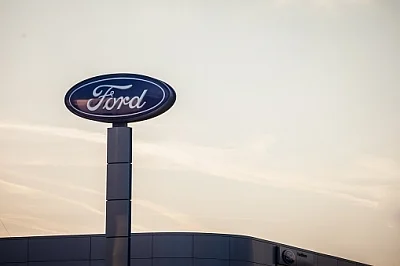The first time Ford exited the Indian market was back in 1953. They had cited the high production cost due to extreme import restrictions as their reason for leaving India. After almost half a century, they have again departed from the fourth-largest auto market.
The automobile giant announced their departure from the Indian market in September last year. Ford, almost did take a U-turn in February this year when they secured a Production Linked Incentive (PLI) benefit for electric car manufacturing offered by the Indian Government. However, the plan did not materialise.
Tata Motors, the same company whom Ford once tried to school back in 1999, has recently acquired the latter's Gujarat Plant. In an infamous incident, founder Bill Ford had once lectured Ratan Tata on passenger car division management.
However, the tables seem to have turned though not for the first time. Tatas also rescued Ford from bankruptcy in 2008 when they acquired Jaguar and Land Rover in an all-cash deal.
Ford's India Run
During Ford’s second innings in the Indian market, they first entered as Mahindra Ford India Limited, a 50-50 joint venture, but soon became a majority holder (72%) in 1998 and renamed themselves as 'Ford India Private Limited.'
By 2003, they launched iconic models like Escort, Ikon, and Endeavour. However, post their initial success, only EcoSport had a decent market reception. They had successful models like Bronco, Explorer, Escape, and a whole line of vans offered in the USA, but these models were never fully explored for the Indian Market. So, what did happen to the auto pioneers of the world?
Price Hike, Taxation, Design Remain Major Contentions
Reflecting on one of their misses, if we take the case of Figo launched in 2010 which even though did see some positive response, could not create or sustain what Escort or Ikon generated for Ford.
The key issues are design and pricing. An automatic petrol Figo costs approximately 1.5 lakhs more than the Figo manual, whereas, for other brands, the difference between manual and automatic variants is less than a lakh. It is also more expensive than most automatic cars in the same segment. Therefore, it is imperative to understand that one of the contributors to this price difference is engine size.
The tax on automobiles in India depends on engine size and vehicle length. Considering that the automatic version of Figo had a 1.5 L engine, where the tax slab jumps at 1.2 L, Figo became costlier than similar automatic cars in the same segment (the manual version has a 1.2 L engine).
1.5 L engine size does not even contribute much to a small car. On the other hand, the Ford cars in India did not carry essential safety features like ‘Isofix’ (child car seat fixers), which are standard features in other cars in the same price range and even in some cars at a lower price point.
India’s Auto-Market Fertile for Foreign Players
The Indian car market is currently a playing field for numerous non-native players, where the Indian players only hold about 20 percent of the market share. Suzuki and Hyundai together occupy more than 50 percent of the market. Kia, which has only been in the market recently, has already gained 5.71 percent of the market, almost three times Ford’s 25 years of market share.
Can Ford Afford To Not Cope Up With Growing Demands?
On value proposition, Suzuki in India offers fuel-efficient, low maintenance, and economically-priced cars, Tata, with their New Car Assessment Program(NCAP) crash testing ratings, offers safe vehicles, Volkswagen offers premium cars, and the new entrants Kia and MG Hector are offering cars with the latest technology (360 camera, internet inside, etc.)
Hence to Indian consumers, Tata is a safe car, Maruti Suzuki is one of their own & affordable as the brand is synonymous with a car for countless Indians, Volkswagen is a fun-to-drive car, and Kias and MGs are high on features. But Indian consumers never really had a solid perception of a Ford car.
Since auto companies from other countries penetrated and successfully positioned themselves in the Indian auto market, the market cannot be blamed for the failure of companies like Ford or General Motors. India is an attractive market with the Government actively trying to make ‘doing businesses’ easy.
Consumers have become less price-sensitive and are loosening their purse strings for safer and premium cars. The market evolved, but Ford chose not to adapt. They did not upgrade their models with newer features that the market demanded, did not bring in newer versions, and did not reflect enough on the pricing.
Will Ford Make a Comeback?
Ironically, Ford Ecosport, which started the subcompact SUV trend in India, helped its rivals Tata motors to establish itself in the market with its highly successful model – Tata Nexon.
Ford’s inability to scale and sustain itself in a growing market reinforces the importance of fundamental marketing concepts like segmentation, targeting, and positioning. Ford, neither has a precise image nor a clear target segment of consumers. Hopefully, the lessons learned from the Indian market will help Ford in the future, and they will be mindful of them in their third innings (if any) on the Indian roads.
(The authors are associated with the Indian School of Business(ISB). This is an opinion piece and the views expressed are the author’s own. The Quint neither endorses nor is responsible for them.)
